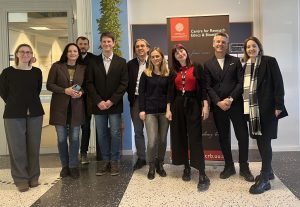The use of artificial intelligence (AI) in the education sector has been the subject of considerable debate recently. Ethical challenges are faced when using AI-based information systems as support tools, e.g. for students’ theses, for researchers’ research conduct, for scientific publications.
In 2019, an independent high-level panel of experts on AI published the Ethical Guidelines for Trustworthy Artificial Intelligence which address both legal and ethical issues. The Guidelines point out that researchers should be able to explain the reliability and reproducibility of AI-based information systems and that researchers’ competences in this area should therefore be developed accordingly.
The United Nations Educational Scientific and Cultural Organisation (UNESCO) has published its 2021 Recommendations on the Ethics of Artificial Intelligence. It notes that AI-based technologies affect science in the broadest sense, irrespective of the field of science, as their proper use in research requires new skills and methods. In addition, these technologies are changing scientific concepts and explanations. The Recommendations emphasise that the use of AI as a method in research must be properly justified and rigorously monitored in accordance with scientific principles.
The study of the Council of Europe published in 2022 “Artificial Intelligence and Education: A critical view through the lens of human rights, democracy and the rule of law” discusses AI in education from a legal and ethical perspective. This study notes that in the long run it will not be enough to add provisions on the use of AI to the codes of ethics or integrate knowledge of AI into updated curricula. It is noted that the ethical review in research should also include an assessment of the use of AI-based information systems in planned research (e.g. in the management of research data and the personal data contained in them, with the informed consent). Thus, the measures and procedures applied so far are no longer sufficient.
Legal and ethical aspects of data protection have also received considerable attention in EU-funded projects such as PANELFIT (report “Guidelines on Data Protection Ethical and Legal Issues in ICT Research and Innovation. Artificial Intelligence”), Sherpa (model “Artificial intelligence impact assessment”), SIENNA (column “Artificial intelligence & Robotics”).
We invite the academic community to take a closer look at the afore-mentioned documents and take a responsible approach to the use of AI-based information systems in research conduct and the publication of research results.


